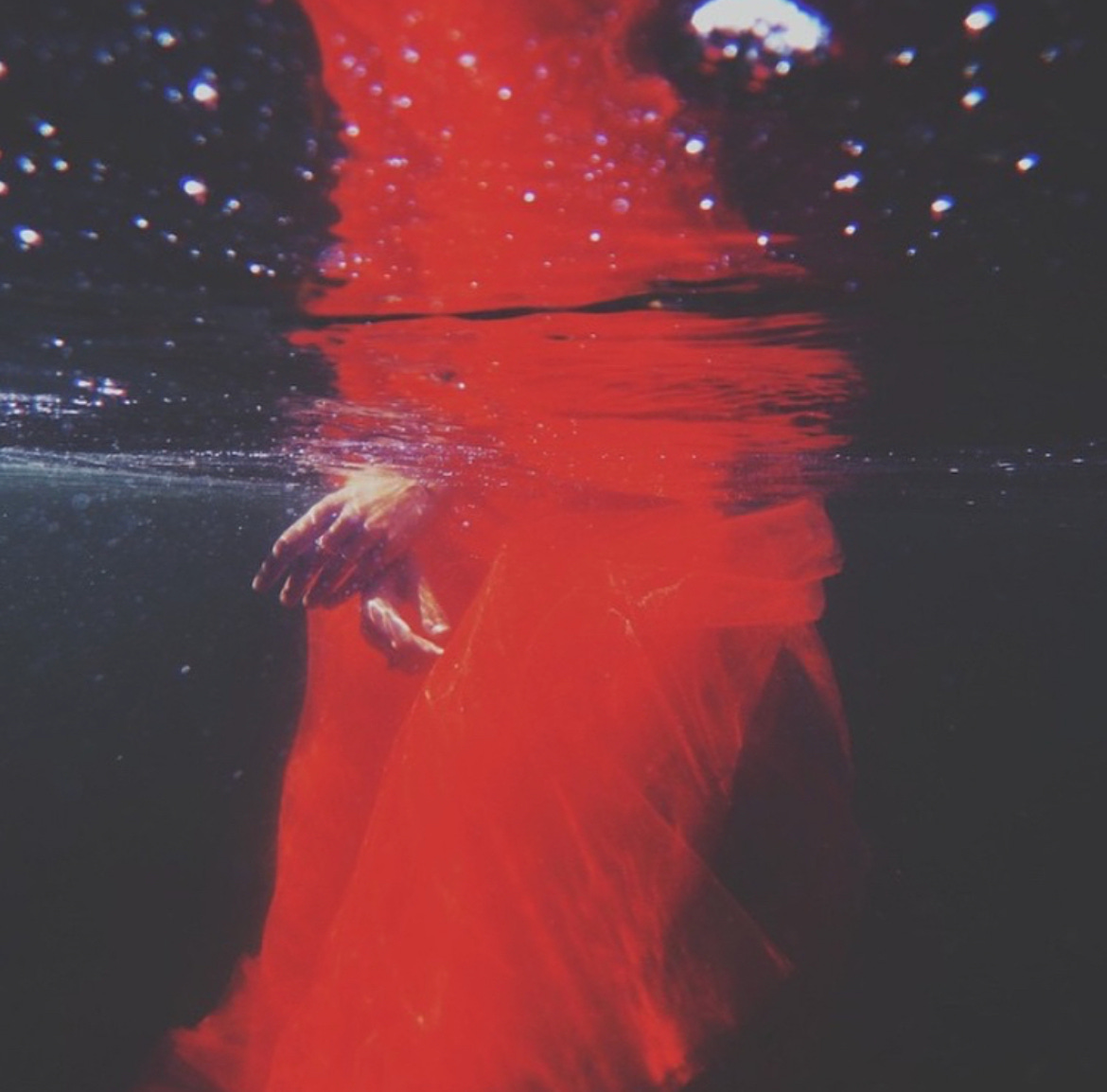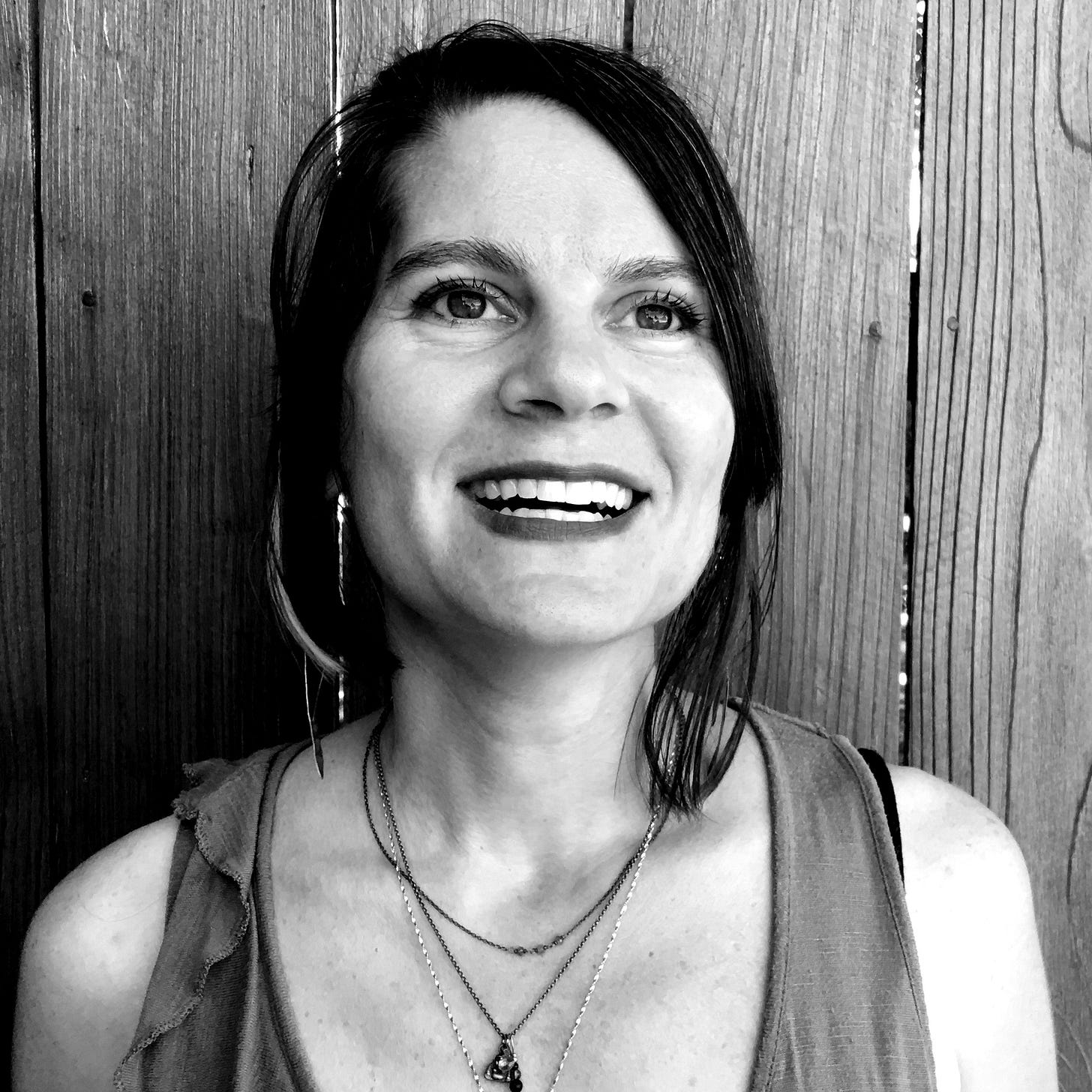
To remove blood from a sheet, use a fingernail and soap. Wet with water. Apply soap—bar of soap, liquid, doesn’t matter. Rub to a white lather. Scrape with a fingernail edge back and forth, top to bottom. Horizontal, then vertical. Or vertical, then horizontal. Work the blood from the fabric in lines and circles. Careful not to rub a hole through. Rinse with water. If blood remains, start over. Fingernail and soap. Scrape back and forth. Horizontal and vertical. Rinse. If this doesn’t work, try a toothbrush and Tide, same method. Trick is, treat the stain right away. The longer it sits, the harder to remove. Old blood, faded blood, blood you’ve tried to rub out turns brown. Not sandstone or mahogany. A muddy not-nice brown. Sometimes the center clears, leaving only an outer edge. It’s like the chalked outline of a dead body on cement. Everyone knows what was there.
We learn to clean blood stains from underwear, backsides of dresses and pants, in cars, on couches, mattresses, sheets, and public seats all over the world.
***
I see blood one morning, a week before I turn thirteen. I reach into the bathroom cabinet and pull out a pad–an older sister and mother in the house. I tear off the adhesive strips and attach it to my underwear. I tell my sister, and she hands me a pamphlet with a diagram of my parts. I already saw this drawing in fifth grade, boys and girls separated, both groups made to watch a short film on their development.
Only one large trash can in the restroom and it’s open at the top and sitting at the front entry. When you exit the stall, hide used supplies balled up in your hand or in a pocket or waistband. Station a friend between the entry and the trash can, and, if clear, dump it. If not, continue walking, cool cool cool, right out of there, stuffing that used tampon or pad wherever you can.
My best friend Peggy has already started. That night I write her a letter. She’s away at summer camp and it’s the only way to reach her. I feel a tinge of pride—me too!—and one of commiseration. How will I go to gym class now? I’ll never get into a pool of water again.
***
I try my first tampon. I put it in, leave for school. Only, something is wrong. It feels like every ounce of moisture in my vagina immediately disappears. The cotton of the tampon sticks to my insides. It’s too big, or I’m too small, or something else altogether. Every step is painful. I try to take small steps, and with each one, a stabbing pain. Somehow I manage to push past the pain and get to school, powered by misguided optimism that it will eventually get better. How hard can this be? Everybody else does it.
When I arrive, I can’t sit down. I sort of prop myself on the edge of my seat and lean back. Finally, at midday, I decide I can’t take it anymore and ask for permission to go to the restroom. Pull out the tampon, lay a thick layer of toilet paper in my underwear, hoping I can get home without an accident. I swear I’ll never wear a tampon again, and I don’t. Instead, I wear disposable pads in different sizes. Hate the wet, slick mound between my legs, the baby powder scent. Worry that it shows the bulge at my ass crack.
***
Peggy and I team up to develop an elaborate strategy of hiding. The goal is to go undetected, to not get caught having a period. Even other girls can’t know. She’s on the rag, they’ll say, despite the fact that any of them may also be bleeding.
How I Learned is an indie publication that runs on readership and so-so psychotropics. To support the work, consider a free or paid subscription. Commitment resistant? Same. A one-time donation is also deeply appreciated.
Number One. Do not carry a purse. A purse is a dead giveaway, even if you carry a purse all the time from now until you’re old, it means you’re bleeding or might be bleeding.
Number Two. Smuggle your supplies to school without being noticed. Pads or tampons, doesn’t matter. Stuff them in pockets, bras, and waistbands, even socks if you must.
Number Three. Pee or blow your nose or flush the toilet as you very quietly, stealthily, open packaging of said supplies and quickly (too long and you’re found out or worse, they think you’re pooping) place them in your vagina or on your underwear or both if you’re worried about bleed-through.
Number Four. Hide the evidence. Only one large trash can in the restroom and it’s open at the top and sitting at the front entry. When you exit the stall, hide used supplies balled up in your hand or in a pocket or waistband. Station a friend between the entry and the trash can, and, if clear, dump it. If not, continue walking, cool cool cool, right out of there, stuffing that used tampon or pad wherever you can.
Number Five. Always check for bleed-through. No one wants to be The Girl Who Bled In Her Pants Or On Her Seat. It’s best to have a friend to share a language of secrecy, otherwise you’re forced to drop a pen and try to look at your own crotch.
“Did the birdie fly?” and “Did the cow go moo?” Both mean: I’m going to walk ahead of you, and I want you to look at my ass and tell me if you see blood leakage.
We do this for each other every day of our periods. We follow all the steps of the strategy, even during lighter days when an accident is unlikely.
***
Peg and I are sitting in the middle school lunchroom, talking. No food between us because we don’t eat, but school rule is, whether you eat or not, you must gather in this dim, cavernous room in the basement.
We’d stopped eating lunch a year ago, after the first day of sixth grade, me out of humiliation and Peg out of solidarity. My mom had told me all I needed to do was tell the woman at the register my name and I’d get a whole lunch for free, the free-lunch list, she called it. Since we didn’t have money for me to buy lunch and no food for me to take, this was good. Exciting, even. But when I reached the lady, sliding my tray down a long line to the register and told her my name, she made me wait. The whole line had to wait and watch while she got a clipboard and checked for my name. Verified. Mortified. I never ate lunch again. Not in sixth grade, or seventh grade, or eighth grade. In four years of high school, I went to the cafeteria only once, got a chocolate milkshake, never went again.
The goal is to go undetected, to not get caught having a period. Even other girls can’t know. She’s on the rag, they’ll say, despite the fact that any of them may also be bleeding.
We bide our time until after school. Peggy gets $2 for lunch, $1 for the lunch fee and $1 to spend as she likes, so every day we stop at the mini mart on the way to her house. She’ll hand me a dollar, and we’ll buy whatever we want. Score Bars and Marathon Bars, that marriage of caramel and chocolate, the usual top picks, and we’ll eat them together while watching “Santa Barbara.”
Something drops onto our lunchroom table. A white, rectangular lunch napkin laden with a red circle in the center. Ketchup. We look up to see a circle of boys. They say things about us bleeding. They say things about us being gross. And then they leave and go back to their table, laughing. I pick up the napkin, go to them, slam it down in the center of their table. Like a shotgun, I fire off every f-word configuration possible. They stare. Say nothing.
After lunch, Peggy and I are called to the principal’s office. He turns to me, asks if my grandfather knows I talk “this way” (they’re old friends), and threatens to tell him. I start crying. He does not ask us what happened. This man who is old and wearing a suit and knows my grandpa is not someone to whom I can utter the word “period.” The boys are not brought to the office. I never find out who reported us. Peg and I are sent to detention for the rest of the day, and this, and my foul mouth become the story around school.
We are stressed. We’re afraid someone will know we’re on our periods — or worse, we’ll be The Girl Who Bled In Her Pants Or On Her Seat, from which there’s no recovery. And we stress when we’re not on our periods because they’re not always regular, so we’re afraid all the time.
Bright like Red Hots or dark like brick, blood demands to be seen. We must be smarter than blood
Heather Hawk writes from her home in the Pacific Northwest, where she also runs her own wellness practice. Her work has been published in Off Our Backs, Northwest Women’s Journal, 100 Word Story, and most recently featured in Zone 3 where her essay was chosen for an Editors Choice Award. She is currently working on a memoir about lady parts politics and uterine fibroids, selected as a 2023 finalist for the Barbara Deming Memorial Fund.





Damn, this is so good
Amazing. Insightful. I held my breath for you. Love the pace. Great topic - for everyone. Thank you!